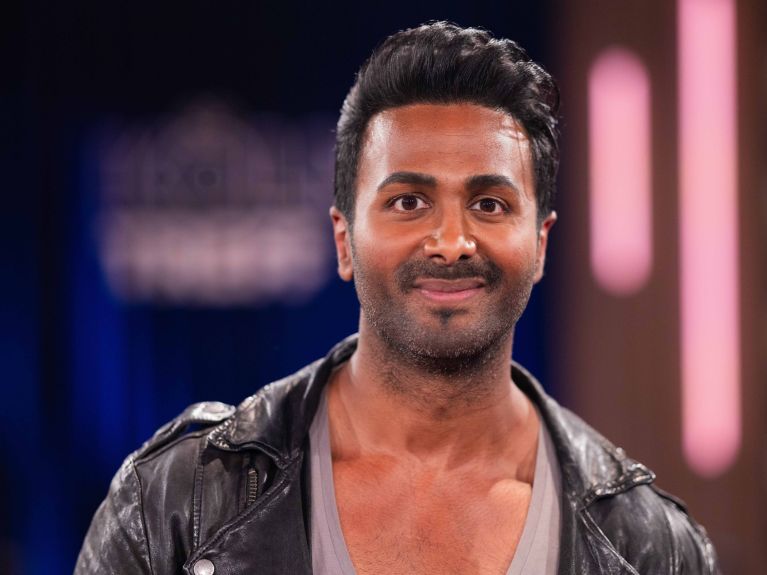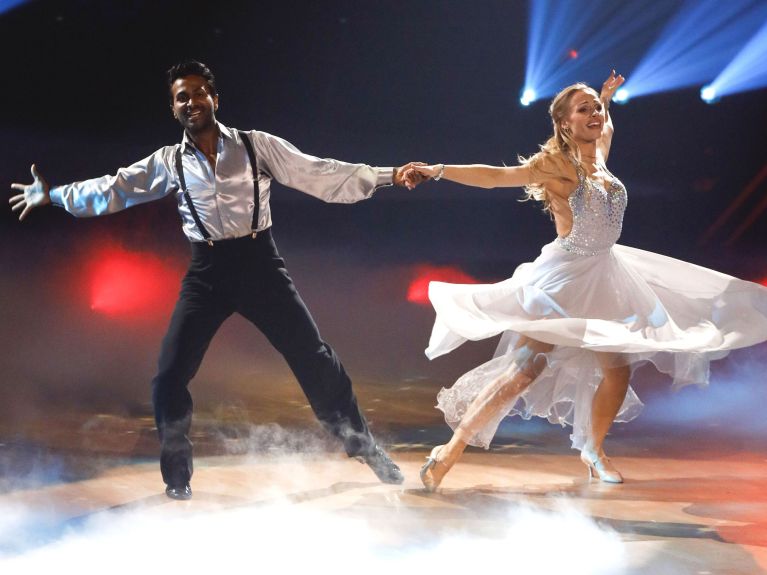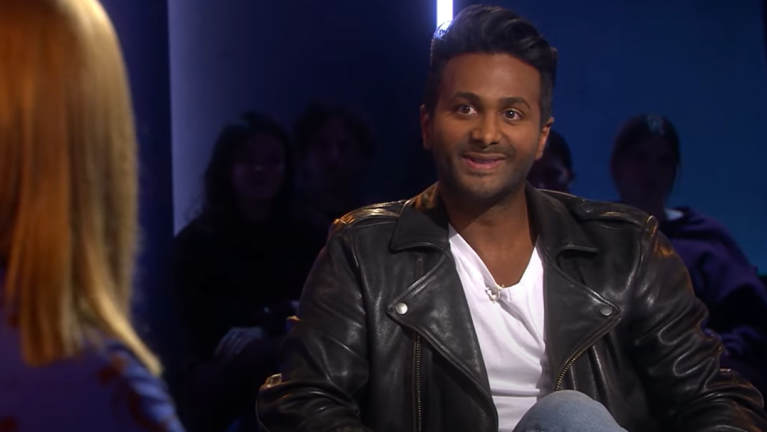A tour guide to happiness
Biyon Kattilathu wants to show people the path to happiness. He explains how his own background has shaped his many talents and what drives him these days.

A German-Indian motivation coach, bestselling author and podcaster, Dr Biyon Kattilathu has around a million followers on social media. In September, the 41-year-old will be embarking on his third tour of Germany, entitled “A Journey to Happiness”.
Your parents immigrated to Germany’s Ruhr region from India in the early 1980s. What was it like for you to grow up between two cultures?
It wasn’t easy, especially at first. I was the only child with dark skin at my kindergarten and at primary school. I was marginalised by the other boys and was the target of racist insults. And when we would fly to India for the summer holidays, I was always the child from Germany there. Back then I asked myself a lot of questions: why am I different, where do I belong? This pondering also helped me grow as a person however, making me more empathetic. Perhaps I embody traits from both cultures: a sense of discipline and punctuality on the one hand, and an affinity with music and dance on the other. In any case, I don’t see myself as either German or Indian - simply as a human being.
I think that many people who have come to Germany from abroad can recognise something of themselves in me.
For more than ten years, they have talked and written to me about issues close to their hearts, such as happiness, self-love and mindfulness. Critics accuse you of spouting platitudes. They also claim that many of your practical tips are not new - such as the idea that one should be conscious every day of the things for which one is grateful. How do you explain your success?
These are things that are important to people all over the world, regardless of their religion, language or culture. After all, we are all searching for happiness. Many ideas and life hacks that help people to become happier are similar because they are tried and tested. However, the same message can be used to reach different people. It’s like in music: every chord has already been played, but each singer reaches a different audience. I think for example that many people who have come to Germany from abroad can recognise something of themselves in me.
Comedy can serve as a valve to let off steam and get a grip on one’s worries.
You sell your books and other products under the label “Inderleicht” – a play on the German word “kinderleicht” (meaning child’s play). Could this be called “ethnic comedy”? Comedians with a migration background whose material revolves around their ethnicity have become very trendy in recent years...
I have some good friends in the scene. Comedy can serve as a valve to let off steam and get a grip on one’s worries, and at the same time is a good way of highlighting cultural differences and combating prejudice through humour. German laugh at such jokes, but broaden their minds and learn a lot at the same time.

What did you do as a child and adolescent to find your place in German society?
To earn respect I worked very hard at primary school - and also on taekwondo. That taught me to channel my energy and focus on my strengths. At the age of eleven, I was the youngest person in Germany to attain a black belt. Later I was also the class representative and captain of my football team. I learnt then that I was able to motivate others. I also had a phase in my teens when I did a lot of stupid things, however. I would hang around on the streets with other kids, got involved in lots of conflicts and had to do some hours of community service.
Dieses YouTube-Video kann in einem neuen Tab abgespielt werden
YouTube öffnenThird party content
We use YouTube to embed content that may collect data about your activity. Please review the details and accept the service to see this content.
Open consent formAfter leaving school you did a degree in industrial engineering. What made you choose this subject?
It was clear to my parents that I should become either a doctor or an engineer. As the child of immigrants, it’s so easy to carry around a lot of guilt: my parents have given up everything so that I can have a better life. I didn’t particularly like my degree course, but I saw it through and also did a lot of part-time work on the side, like as a kitchen porter, waiter and shoe salesperson. When I graduated, my favourite professor offered me the chance to do a PhD in motivational psychology. That is what saved me. While doing an internship in a global company, I’d already come to the conclusion that that wasn’t the work life I wanted.
And once you’d completed your PhD?
My family and my friends put pressure on me to do something sensible. But my dream was to be self-employed and to share my knowledge. Thanks to social media I was able to just get started without having lots of contacts or much money. It was tough at first, as I got hardly any reaction. But I was confident that if I was having fun and invested enough creativity and work into it, it would work out sooner or later. I kept fine-tuning my videos, and after two years the first ones went viral and people began talking to me on the street. My own story also symbolises my message: be aware of your strengths and of what motivates you. And then put your heart and soul into it.
There is also a lot of hostility towards you online. How do you deal with that?
Hate speech doesn’t bother me too much. What a person writes simply reveals what they are like on the inside. If you’re out having a walk in the woods, you may also come across people who don’t look at you or who turn up their nose at you. What’s important is to focus on the people who smile at you. The fact that I can no longer go and have a coffee in town without people recognising me is one of the reasons why I moved with my family into the countryside, where we live with our cats, hens and three dogs. I also need this peace and quiet because I want to finish writing my new book before setting off on tour.
What do you want your audiences to take away with them from your performances?
I believe that everyone takes something different away with them - whatever will benefit them. What’s important to me is that they leave the venue a bit happier than they were when they arrived.



